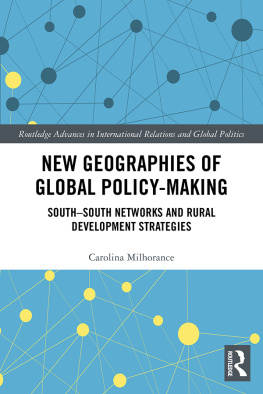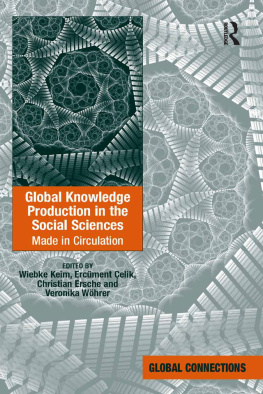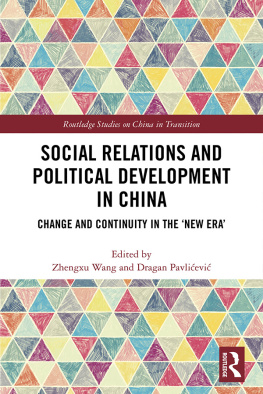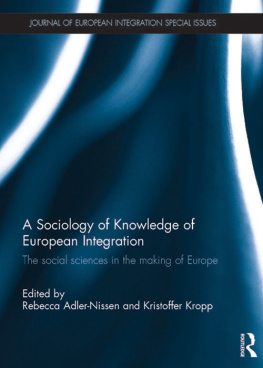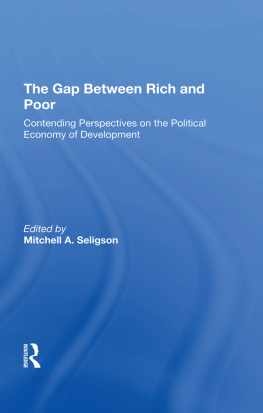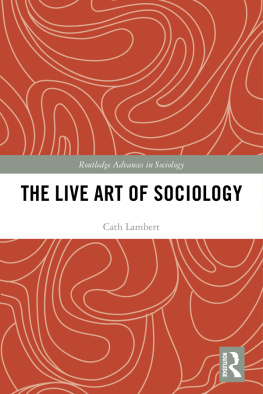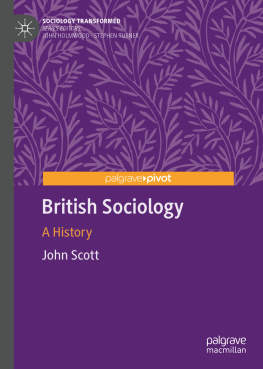The International Library of Sociology
MALAY FISHERMEN: THEIR PEASANT ECONOMY
Founded by KARL MANNHEIM
The International Library of Sociology
THE SOCIOLOGY OF DEVELOPMENT
In 18 Volumes
| I | Caste and Kinship in Central India | Mayer |
| II | Economics of Development in Village India | Haswell |
| III | Education and Social Change in Ghana
(The above title is not available through Routledge in North America) | Foster |
| IV | Growing up in an Egyptian Village | Ammar |
| V | India's Changing Villages | Dube |
| VI | Indian Village | Dube |
| VII | Malay Fishermen | Firth |
| VIII | The Mende of Sierra Leone | Little |
| IX | The Negro Family in British Guiana | Smith |
| X | Peasants in the Pacific | Mayer |
| XI | Population and Society in the Arab East | Baer |
| XII | The Revolution in Anthropology | Jarvie |
| XIII | Settlement Schemes in Tropical Africa | Chambers |
| XIV | Shivapur: A South Indian Village | Ishwaran |
| XV | Social Control in an African Society | Gulliver |
| XVI | State and Economics in the Middle East | Bonne |
| XVII | Tradition and Economy in Village India | Ishwaran |
| XVIII | Transformation Scene | Hogbin |
I LINE FISHERMEN AT WORK
Catching small cuttle-fish, part of each man's catch lies in front of him. The round pedestal-boxes contain food, the rectangular boxes hold betel materials, hooks, etc. The photograph was taken soon after dawn, about 10 miles off the Kelantan coast.
[frontispiece
MALAY FISHERMEN: THEIR PEASANT ECONOMY
by
RAYMOND FIRTH
First published in 1946
by Routledge, Trench, Trubner and Co., Ltd
Reprinted in 1998, 2000, 2002
by Routledge
2 Park Square, Milton Park, Abingdon, Oxon, OX 14 4RN
Transferred to Digital Printing 2007
Routledge is an imprint of the Taylor & Francis Group
1946 Raymond Firth
All rights reserved. No part of this book may be reprinted or reproduced
or utilized in any form or by any electronic, mechanical, or other means,
now known or hereafter invented, including photocopying
and recording, or in any information storage or retrieval system, without
permission in writing from the publishers.
The publishers have made every effort to contact authors/copyright holders
of the works reprinted in The International Library of Sociology.
This has not been possible in every case, however, and we would
welcome correspondence from those individuals/companies
we have been unable to trace.
British Library Cataloguing in Publication Data
A CIP catalogue record for this book
is available from the British Library
Malay Fishermen
ISBN 0-415-17574-7
The Sociology of Development: 18 Volumes
ISBN 0-415-17822-3
The International Library of Sociology: 274 Volumes
ISBN 0-415-17838-X
Publisher's Note
The publisher has gone to great lengths to ensure the quality of this reprint
but points out that some imperfections in the original may be apparent
CONTENTS
PREFACE
APPENDICES
PLATES
PREFACE
This book is a study of some Far Eastern peasant problems, based mainly on field research. As originally planned, it was intended to demonstrate four main points. The first is the need for much more attention to the native fishing industry in tropical regions ; though forming the livelihood of large numbers of people, by comparison with the native tropical agriculture it has suffered from neglect by both scientists and governments. The second point is the need for more studies of the economics as distinct from the technology of these peasant systems ; before the war the investigation and handling of peasant economic affairs tended to fall between the two stools of the administrative and the technical departmentseach was interested but its major job lay elsewhere, with the result that the economic aspects of the problems were not approached in an integrated way. The third point is the need for basing generalizations about a peasant economy on systematic, planned research of an intensive kind. Just as a sound policy in matters of public health or of agriculture must be founded on a great deal of factual knowledge, carefully accumulated by trained personnel working on the spot, so also policy aimed at improving the economic conditions of peasant communities should rely to a large extent on a body of factual inquiries made by people whose special job is to make such inquiries and who have been trained for the work. The fourth point is the importance in such work of collaboration between two or more spheres of interest or scientific disciplines. Research into peasant economic systemsfor which even ordinary statistics are usually not obtainabledemands special techniques for collecting the information. Some kind of fusion between the theoretical apparatus of the economist and the field techniques of the anthropologist seems called for, as one type of attack on the problems. This book is an essay in this kind of approach. Whatever may be its short-comings, I do think that it shows the need for more work of a similar nature.
At the present time much attention is being given to the ways in which anthropology can be of help in dealing with administrative problems. I think it will be generally agreed that no scientist should have his work dictated to him by considerations which appear to be purely practical ; that he should be free to choose what he regards as the most significant lines of research to elucidate general principles in his field of study. At the same time it is reasonable to ask in these days that the scientist should indicate what, if any, are the practical implications of the work that he is doing. I have accordingly attempted to point these out in the first and last chapters of this book. But a warning is necessary here. Science has now acquired a kind of mystical value for the layman. There is a tendency to put to the scientist almost any type of problem, ask him to take a quick look at the conditions, and to give an answer which will help to solve it almost at once. Often it is not realized that to give an answer which is worth anythingparticularly on a social questiona mass of basic information has to be systematically collected, and this may take months of inquiry. It may demand a study by several people in a number of different areas. If therefore the results of one man's work may seem inconclusive and disappointing from the practical point of view, this is often not an argument for abandoning scientific inquiry, but for having much more of it. Moreover, even a large-scale scientific investigation cannot necessarily result in the solution of a pressing social problem some of the conditions for settling it may lie outside the scientist's province. To raise the standard of living of a peasant society, as in Malaya, for instance, involves major questions of social and economic policyon capital expenditure ; on the relations which it is desired to maintain between Malays and Chinese ; on the plantation system and on industrialization ; on the aims of colonial government itself. The scientist may have his ideas about what should be done, but he is usually in no position to implement them, even if he were competent to do so.


